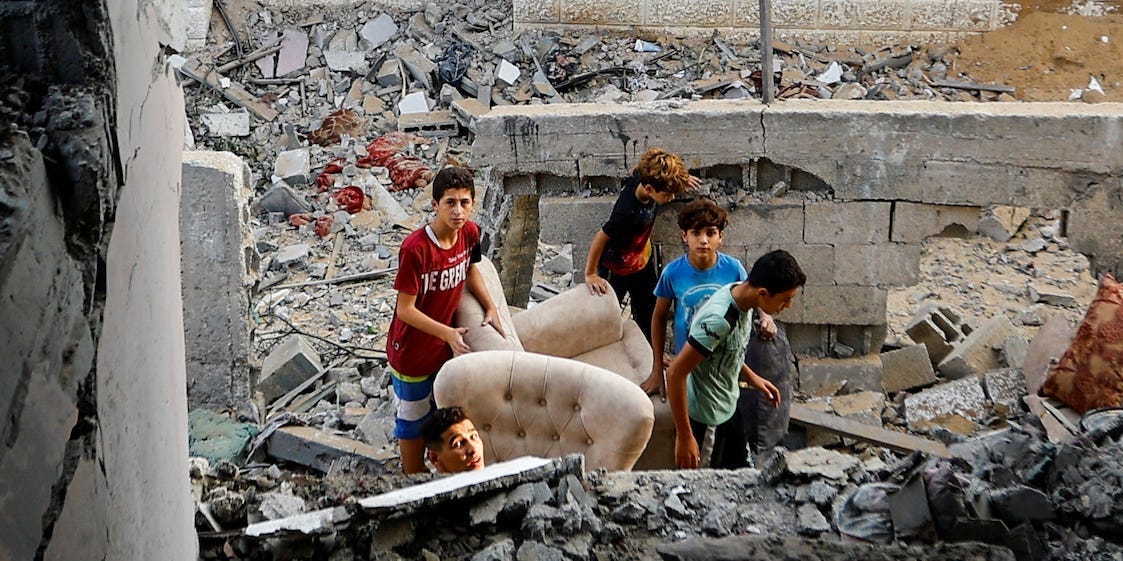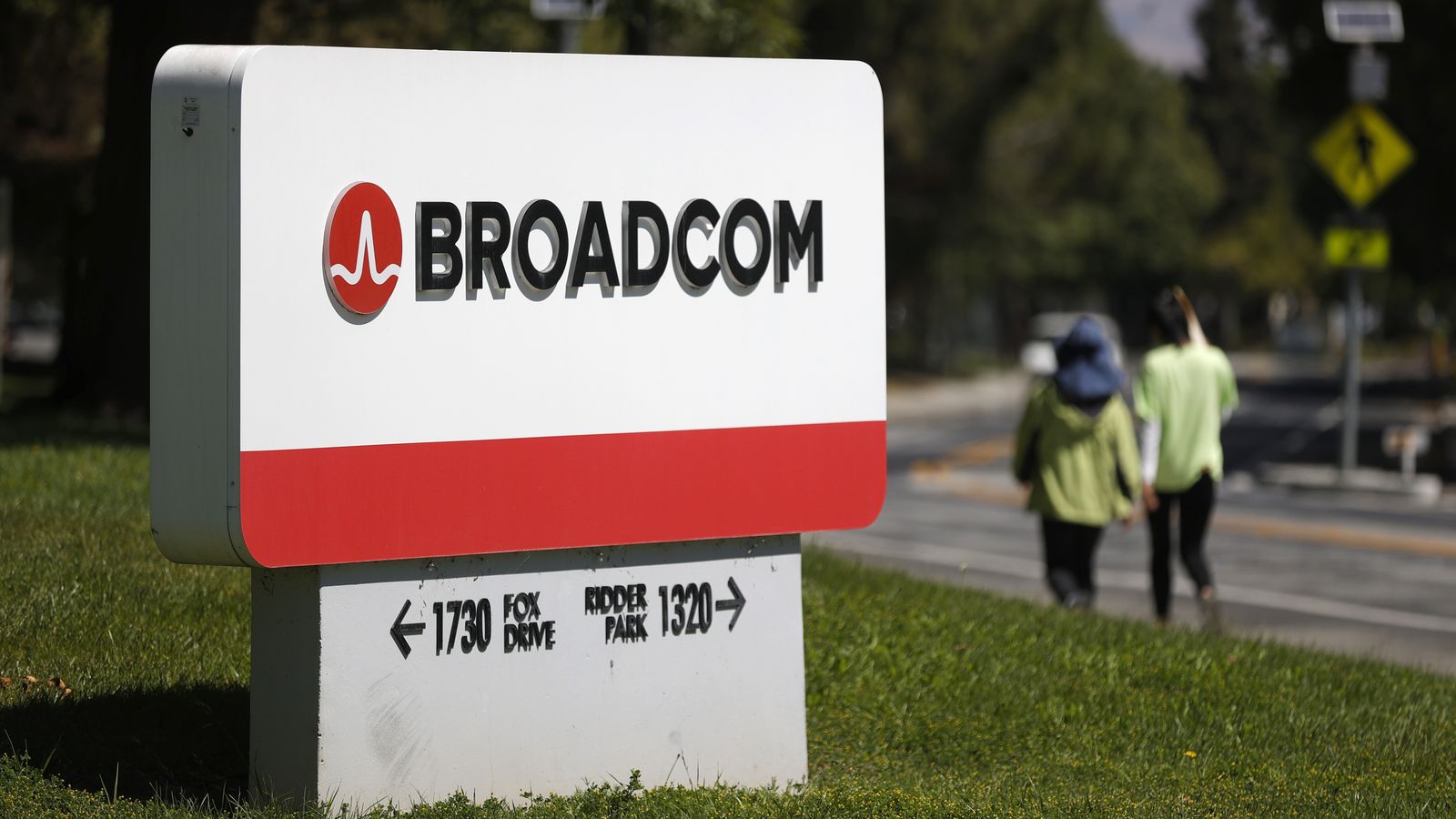Understanding Chicago's "Zombie" Office Buildings And Their Implications

Table of Contents
Defining "Zombie" Office Buildings in Chicago
The term "zombie" office building, in the context of Chicago's market, refers to commercial properties that are functionally dead but not officially declared so. These buildings are characterized by a combination of factors indicating severe economic distress and a lack of viable future. They continue to exist, often incurring ongoing debt and maintenance costs, but fail to generate sufficient revenue to sustain themselves.
- High vacancy rates: Consistently above 80% for extended periods, indicating a severe lack of tenant interest. This prolonged vacancy signals a fundamental problem with the building's marketability.
- Significant deferred maintenance and building code violations: Years of neglect often lead to accumulating repairs, posing safety hazards and further reducing the building's value. These issues deter potential buyers or renters.
- High levels of debt or distressed ownership: Many zombie office buildings are burdened by significant loans they struggle to repay, often resulting in foreclosure proceedings or ownership disputes.
- Lack of active leasing or redevelopment efforts: A clear indication of a building's zombie status is the absence of any serious attempts to lease the space or pursue redevelopment projects.
- Negative cash flow, relying on external funding to stay afloat: These buildings operate at a loss, requiring continuous injections of capital to cover operational costs and debt payments, an unsustainable long-term strategy.
Causes of the "Zombie" Office Building Phenomenon in Chicago
Several factors have converged to create the current situation of numerous vacant office spaces in Chicago. The problem is multifaceted and demands a thorough understanding of its underlying causes.
- The shift to remote work post-pandemic: The COVID-19 pandemic accelerated the pre-existing trend towards remote work, dramatically reducing the demand for traditional office spaces across the city. Many companies downsized their office footprints or opted for hybrid work models.
- Increased suburban office space competition: The rise of suburban office parks, often offering more affordable rents and ample parking, has intensified competition, impacting occupancy rates in downtown Chicago.
- Economic downturns impacting tenant occupancy: Economic fluctuations, such as recessionary periods, can directly affect businesses' ability to maintain large office spaces, leading to increased vacancies.
- Rising property taxes and operating costs: The increasing costs associated with maintaining a large commercial building, including property taxes and utilities, can make it financially unsustainable to operate a partially vacant space.
- Inefficient or outdated building designs: Buildings that lack modern amenities, energy efficiency, or flexible layouts struggle to attract tenants in today's competitive market.
- Lack of investment in building upgrades and renovations: Failing to invest in necessary updates and renovations makes these buildings less appealing to potential tenants, exacerbating the vacancy problem.
The Role of the Pandemic in Chicago's Office Market Decline
The pandemic acted as a catalyst, accelerating pre-existing trends in Chicago's office market. The sudden shift to remote work resulted in a dramatic drop in office occupancy rates.
- Statistics on office vacancy rates before and after the pandemic: Pre-pandemic vacancy rates, while already concerning in some areas, saw a significant spike following the onset of the pandemic, with some reports showing increases of 10-20 percentage points or more.
- Analysis of tenant behavior and preferences regarding remote work: Surveys and data analysis reveal a significant shift in tenant preferences, with many companies embracing hybrid or fully remote work models. This change in behavior has directly impacted the demand for traditional office spaces.
- Impact on the commercial real estate investment market in Chicago: The reduced demand has significantly impacted the investment market, leading to decreased property values and making it harder to secure financing for redevelopment projects.
The Economic and Social Implications of Chicago's Zombie Office Buildings
The proliferation of zombie office buildings in Chicago has far-reaching economic and social consequences that extend beyond the immediate vicinity of the affected buildings.
- Negative impact on property values in surrounding areas: Vacant and neglected buildings can depress property values in the surrounding neighborhoods, affecting both residential and commercial properties.
- Lost tax revenue for the city of Chicago: Vacant buildings generate significantly less tax revenue than occupied ones, creating a financial strain on the city's budget.
- Potential for increased crime and blight in affected neighborhoods: Neglect and vacancy often contribute to increased crime rates and a general deterioration of the neighborhood's aesthetic appeal.
- Deterrent to economic development and investment: The presence of numerous zombie office buildings can deter further economic development and investment, creating a negative feedback loop.
- Strain on city resources for maintenance and security: The city is often burdened with the responsibility of maintaining security and addressing issues related to neglected buildings, placing an unnecessary strain on public resources.
Potential Solutions and Redevelopment Strategies for Chicago's Vacant Office Spaces
Addressing the issue of zombie office buildings requires a multifaceted approach encompassing various redevelopment strategies and policy interventions.
- Converting office spaces into residential units (residential conversion): Converting underutilized office buildings into residential units can help meet the growing demand for housing while revitalizing these spaces.
- Adapting buildings for other uses (e.g., co-working spaces, data centers, hotels): Exploring alternative uses for these buildings can unlock their potential and attract new tenants.
- Incentivizing redevelopment through tax breaks and other government programs: Government incentives can encourage private investment in redevelopment projects, making them more financially feasible.
- Investing in infrastructure improvements in surrounding areas: Improving public transportation and other infrastructure can make these areas more attractive for businesses and residents.
- Promoting sustainable building practices and energy efficiency: Modernizing buildings with energy-efficient features can reduce operating costs and enhance their marketability.
- Creative placemaking and community engagement initiatives: Involving the community in the redevelopment process can foster a sense of ownership and help create vibrant and sustainable neighborhoods.
Conclusion
Chicago's "zombie" office buildings present a complex challenge requiring a multifaceted approach. Understanding the root causes, such as the shift to remote work and economic downturns, is crucial for developing effective solutions. Redevelopment strategies, including conversions to residential or other uses, combined with supportive government policies, are essential to revitalize these vacant spaces and mitigate their negative economic and social implications. Addressing this issue proactively is vital for Chicago's continued economic health and the well-being of its communities.
Call to Action: Learn more about the strategies being implemented to combat the rise of Chicago zombie office buildings and contribute to the conversation on how to revitalize our city's commercial real estate landscape. Let's work together to prevent more buildings from becoming vacant and contribute to a healthier and more vibrant Chicago.

Featured Posts
-
 Is Dysprosium The Next Big Bottleneck For Electric Vehicle Production
Apr 29, 2025
Is Dysprosium The Next Big Bottleneck For Electric Vehicle Production
Apr 29, 2025 -
 Chainalysis Acquires Ai Startup Alterya Expanding Blockchain Capabilities
Apr 29, 2025
Chainalysis Acquires Ai Startup Alterya Expanding Blockchain Capabilities
Apr 29, 2025 -
 Elite Universities Unite A Private Collective Challenges The Trump Administration
Apr 29, 2025
Elite Universities Unite A Private Collective Challenges The Trump Administration
Apr 29, 2025 -
 Food Fuel And Water Scarcity In Gaza Fuel Calls To End Israeli Aid Ban
Apr 29, 2025
Food Fuel And Water Scarcity In Gaza Fuel Calls To End Israeli Aid Ban
Apr 29, 2025 -
 India Fund Manager Dsp Sounds Caution Raises Cash Despite Strong Performance
Apr 29, 2025
India Fund Manager Dsp Sounds Caution Raises Cash Despite Strong Performance
Apr 29, 2025
Latest Posts
-
 At And T Sounds Alarm On Broadcoms Extreme V Mware Price Increase
Apr 29, 2025
At And T Sounds Alarm On Broadcoms Extreme V Mware Price Increase
Apr 29, 2025 -
 Austin City Limits Celebrating Willie Nelson And Familys Legacy
Apr 29, 2025
Austin City Limits Celebrating Willie Nelson And Familys Legacy
Apr 29, 2025 -
 Extreme Price Hike For V Mware At And Ts Concerns Over Broadcoms Proposal
Apr 29, 2025
Extreme Price Hike For V Mware At And Ts Concerns Over Broadcoms Proposal
Apr 29, 2025 -
 Rosenberg Accuses Bank Of Canada Of Monetary Policy Mistake
Apr 29, 2025
Rosenberg Accuses Bank Of Canada Of Monetary Policy Mistake
Apr 29, 2025 -
 Willie Nelson And Family An Austin City Limits Concert Retrospective
Apr 29, 2025
Willie Nelson And Family An Austin City Limits Concert Retrospective
Apr 29, 2025
